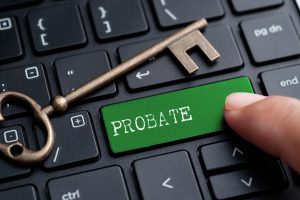 The New York Probate Lawyer Blog has published many articles concerning New York trusts and estates and the settlement of probate and intestate estates. When a person dies, a determination needs to be made as to whether he left a Last Will and Testament. If so, it is important to see whether the Will document is an original or a copy. This is because it is extremely difficult to probate a copy of a Will.
The New York Probate Lawyer Blog has published many articles concerning New York trusts and estates and the settlement of probate and intestate estates. When a person dies, a determination needs to be made as to whether he left a Last Will and Testament. If so, it is important to see whether the Will document is an original or a copy. This is because it is extremely difficult to probate a copy of a Will.
Surrogate’s Court Procedure Act (SCPA) section 1407 entitled “Proof of lost or destroyed will”, sets forth the requirements to prove a Will where the original cannot be located. The prevailing rule in New York is that if the original of a Will was known to be in the possession of a decedent at the time of death and the original cannot be found, there is a presumption that the Will was revoked by the decedent.
Assuming that an original Will is located, the document must be filed with the Surrogate’s Court for probate. The probate process in New York includes the filing of a Petition for Probate. The petition contains information regarding the names and addresses of a decedent’s next of kin (“distributees”), information regarding the Will provisions and also the value of the probate estate.
Since distributees ordinarily have a right to Object to a Will, each distributee either must be served with a Court notice regarding the proceeding called a Citation or sign a Waiver form consenting to the probate. If a waiver is not signed, the Citation sets forth a Court date when the person served with the document must appear and let the Court know whether he desires to move forward with a possible challenge to the Will. Typically, SCPA section 1404 witness and attorney examinations go forward thereafter before actual Objections to the Will are filed.
Even though a person is a next of kin of a decedent and may be an interested party and may have a right to Object to a Will, the statutes still require that a person have standing to do so. SCPA section 1410, entitled “Who may file objections to probate of an alleged will”, requires that a person be adversely affected by the Will. This means that the potential Objectant must be impacted monetarily. In the event a person would receive a greater benefit if the Will is probated than if it is invalidated, then a person will not have standing to file objections.
This was the result in a recent Brooklyn estate case decided by Brooklyn Surrogate Bernard J. Graham on March 10, 2025 entitled Will of Moty Bell Robinson Branch. In Branch, the Court found that the Objectant would receive a greater benefit under the Will than he would if the Will was denied probate. The Objectant’s intestate share would have been less than the probated share. As a result, the Court dismissed the Objections to the Will for lack of standing.
Estate cases and probate proceedings can be very complicated. I have represented clients in probate, administration, accounting and other Surrogate’s Court matters in New York for over 40 years. Do you have a question regarding an estate? Call me now to discuss your issue. We provide reasonable and flexible fee arrangements and personal representation.
New York Trusts and Estates Attorney Jules Martin Haas has helped many clients over the past 40 years to resolve issues relating to guardianship and probate and estate settlement throughout New York City including the Bronx, Queens, Brooklyn, Manhattan, Nassau and Suffolk County. If you or someone you know has any questions regarding these matters, please contact me at (212) 355-2575 for an initial consultation.
 New York Probate Lawyer Blog
New York Probate Lawyer Blog

